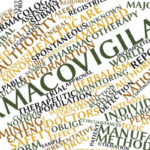What Is ICSR In Pharmacovigilance?

Individual Case Study Report (ICSR) refers to an adverse event report for an individual patient and is source of data in pharmacovigilance. An adverse event is a harmful and negative outcome that happens when a patient has been provided with medical care. Adverse events (AE) occur frequently in medical systems and at least one in ten patients are affected.
While consumers and healthcare professionals are encouraged to report adverse events, the event may have been related to the underlying disease being treated, or caused by some other drug being taken concurrently, or occurred for other reasons.
Focus of ICSR In Pharmacovigilance
The main focus of ICSRs are reports from healthcare providers and patients in member countries of the WHO Programme. A WHO global individual case safety report database (VigiBase) is maintained and developed on behalf of the WHO by the UMC.
VigiBase is the single largest drug safety data repository in the world. Since 1978, the Uppsala Monitoring Centre (UMC; established in Uppsala, Sweden) on behalf of WHO, have been maintaining VigiBase. Vigibase is used to obtain the information about a safety profile of a medicinal product. These data are used by pharmaceutical industries, academic institutions and regulatory authorities for statistical signal detection, updating periodic reports, ICSR comparisons with company databases and studying the reporting patterns. The data is collected from each of its 110 member states. About a hundred thousand ICSRs are added each year.
Adverse event reporting
One of the fundamental principles of adverse event reporting is the determination of what constitutes an Individual Case Safety Report (ICSR). During the triage phase of a potential adverse event report, it is important to determine if the “four elements” of a valid ICSR are present:
- an identifiable patient
- an identifiable reporter (called the “verbatim”)
- a suspect drug
- an adverse event
Seriousness determination
Although somewhat intuitive, there are a set of criteria within pharmacovigilance that are used to distinguish a serious adverse event from a non-serious one. An adverse event is considered serious if it meets one or more of the following criteria:
- results in death or is life-threatening
- requires inpatient hospitalization or prolongation of existing hospitalization
- results in persistent or significant disability or incapacity
- results in a congenital anomaly (birth defect)
- or is otherwise “medically significant” (i.e., that it does not meet preceding criteria, but is considered serious because treatment/intervention would be required to prevent one of the preceding criteria.)
ISO ICSR standard
Coding of adverse events
Adverse event coding is the process by which information from an adverse effect reporter is coded using standardized terminology from a medical coding dictionary, such as MedDRA (the most commonly used medical coding dictionary). The purpose of medical coding is to convert adverse event information into terminology that can be readily identified and analyzed. For instance, Patient 1 may report that they had experienced “a very bad headache that felt like their head was being hit by a hammer” [Verbatim 1] when taking Drug X. Or, Patient 2 may report that they had experienced a “slight, throbbing headache that occurred daily at about two in the afternoon” [Verbatim 2] while taking Drug Y. Neither Verbatim 1 nor Verbatim 2 will exactly match a code in the MedDRA coding dictionary. However, both quotes describe different manifestations of a headache. As a result, in this example both quotes would be coded as PT Headache (PT = Preferred Term in MedDRA).
Safety monitoring of medicines in the European Union (EU)
The European Medicines Agency (EMA) has published a guide to support the implementation of a new international standard for the safety monitoring of medicines in the European Union (EU). The so-called ISO ICSR standard improves the reporting of suspected side effects of medicines in Individual Case Safety Reports (ICSRs). The use of the new international standard has taken effect on 1 July 2016. EMA is herewith closing the circle between ICSR and XEVMPD by using the ISO IDMP´s controlled vocabularies. It requires the use of the new ISO IDMP standards when they become available for use in the EU.
MPID – Medicinal Product Identifier
The interesting part for closing the circle between XEVMPD and ISCR is the so called MPID – Medicinal Product Identifier – also part of IDMP standard ISO 11615 identifying the product with its entire lifecycle (development, authorization, post-Marketing and renewal or withdrawal from the market. Further it is stated that ‘until such a time as the ISO IDMP standards are implemented worldwide, the support for free text will be required.
However, when the circle will be closed, then the aim of IDMP to increase the patients safety will be reached.
ICSR Format
ISO ICSR aims at establishing the same format for the reports on individual cases of suspected side effects in patients due to a medicine across the world. It also is expected to include better information on medicines that might be associated with an adverse drug reaction and on the therapeutic uses of those medicines. In addition, the standard also strengthens personal data protection in the records of ICSRs collected by pharmaceutical companies and regulatory authorities.
This will improve the quality of data collected, and increase the ability to search and analyze them. Regulatory authorities will be able to detect and address safety issues with medicines more quickly, and therefore better protect patients.





